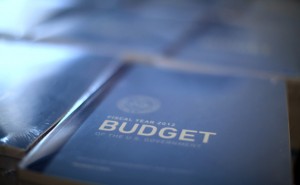 The Budget is rarely an occasion for celebration, and Chancellor George Osborne’s announcement that plans to increase fuel duties by 3p per litre would not be dropped has been met with negative reception from many British motorists, who feel they are already being charged too much for fuel.
The Budget is rarely an occasion for celebration, and Chancellor George Osborne’s announcement that plans to increase fuel duties by 3p per litre would not be dropped has been met with negative reception from many British motorists, who feel they are already being charged too much for fuel.
These new fuel duties will go into effect from August 2012, and a number of motoring groups have voiced their criticism of the initiative, which will cause cash-strapped motorists to be even more out of pocket. With the price of unleaded petrol rising above £1.40 in many parts of the UK, motorists will be paying more than ever before at the petrol pump.
Osborne has defended his decision by pointing to his previous scrapping of the fuel tax escalator in the March 2011 budget, which he explained would have made fuel 6p more expensive at present, if still in effect. This has reportedly saved motorists a total of £4.5 billion according to the Guardian newspaper, but many people feel more could have been done to combat the rising cost of motor fuel.
It’s not only fuel prices that were affected by the recent budget either, with the CO2 emissions threshold for company cars also being reduced from 160g per km to 130g from April 2013, which will penalise employees driving less fuel-efficient vehicles and medium-sized cars in general. However, diesel drivers may benefit from the change, with the dropping of the 3% diesel tax supplement from 2016.
If you’re concerned about the impact of the Budget on your day-to-day driving, switching to a more fuel efficient vehicle could be the most effective way to shield yourself from rising fuel prices, although this is not an economical option for everyone. Finding out how your driving habits could be consuming more fuel than necessary can also be very useful for helping a full tank last longer, such as avoiding stop-start driving or taking alternative routes to avoid traffic congestion.
Now is the ideal time to make these changes to your driving habits, with fuel price increases showing no signs of slowing down. Over the last two years, the monthly fuel bill for a family with two petrol cars has reportedly risen over the last year, and unleaded petrol is expected to have hit £1.50 by the time the new fuel duties are in effect in August. Comparing car insurance to find the best deals and buying used parts for repairs could help you save money in other aspects of car ownership.












Recent Comments